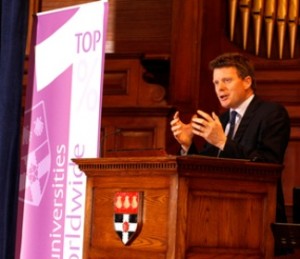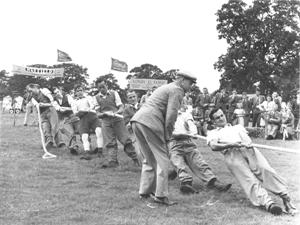 On Sunday 10 March renowned singer/songwriter Hilary James will take a Museum of English Rural Life audience through a witty romp of ancient and modern English comic song.
On Sunday 10 March renowned singer/songwriter Hilary James will take a Museum of English Rural Life audience through a witty romp of ancient and modern English comic song.
Described by BBC Radio 4 having as ‘One of Britain’s finest voices’, Hilary is also offering fans an unmissable opportunity chance to take part in a pre-concert singing workshop. Hilary will introduce singers to some beautiful folk songs as well as offer advice on style and technique.
The museum, which is owned and managed by the University of Reading, has been hosting Reading-based singer and musician Hilary James’ ‘Songs, stories & traditions’ folk series for several years, during which time fans have enjoyed guest appearances from celebrated performers across the folk scene. For this year’s first event, Hilary is joined by regular contributor, world-renowned mandolinist, Simon Mayor and multi-instrumentalist and raconteur Richard Collins.
Hilary said: “This will be a day of sheer fun! Close to Mother’s Day, what better present could there be than to make your mum cry with laughter! If she’s a keen singer, why not treat her to a place on my workshop! We’ll have great fun – as well as plenty of tea & cake! The rest of the family can join us for the evening concert!”
The trio usually perform together as the recently reformed ‘Slim Panatella and the Mellow Virgins’ playing largely American country, old time & blues. However for this one-off concert they will turn their versatility to the story of English comic song, from bawdy ballads to modern ditties, Noel Coward to Jake Thackray and more!
Alison Hilton, Marketing Officer at MERL, said: “We are looking forward to a hugely entertaining day. Local singers should definitely take advantage of this rare opportunity to sing along with and pick up tips from Reading’s internationally recognised singer!”
Hilary James’ singing workshop takes place from 2 to 5pm and costs £35 (£45 including concert) and booking is essential. The concert starts at 6pm, (with real ale bar from 5.30pm) Tickets are £15 (£12 concessions) Booking is advisable but some tickets will be available on the door. Further information and tickets are available from the Museum by calling 0118 378 8660 or by visiting the MERL website at www.reading.ac.uk/merl







 Free craft workshops, morris dancing and pedalling your own smoothies! These are just some of the attractions families can enjoy at this year’s Museum of English Rural Life (MERL) Annual Village Fete on Saturday 9 June.
Free craft workshops, morris dancing and pedalling your own smoothies! These are just some of the attractions families can enjoy at this year’s Museum of English Rural Life (MERL) Annual Village Fete on Saturday 9 June.